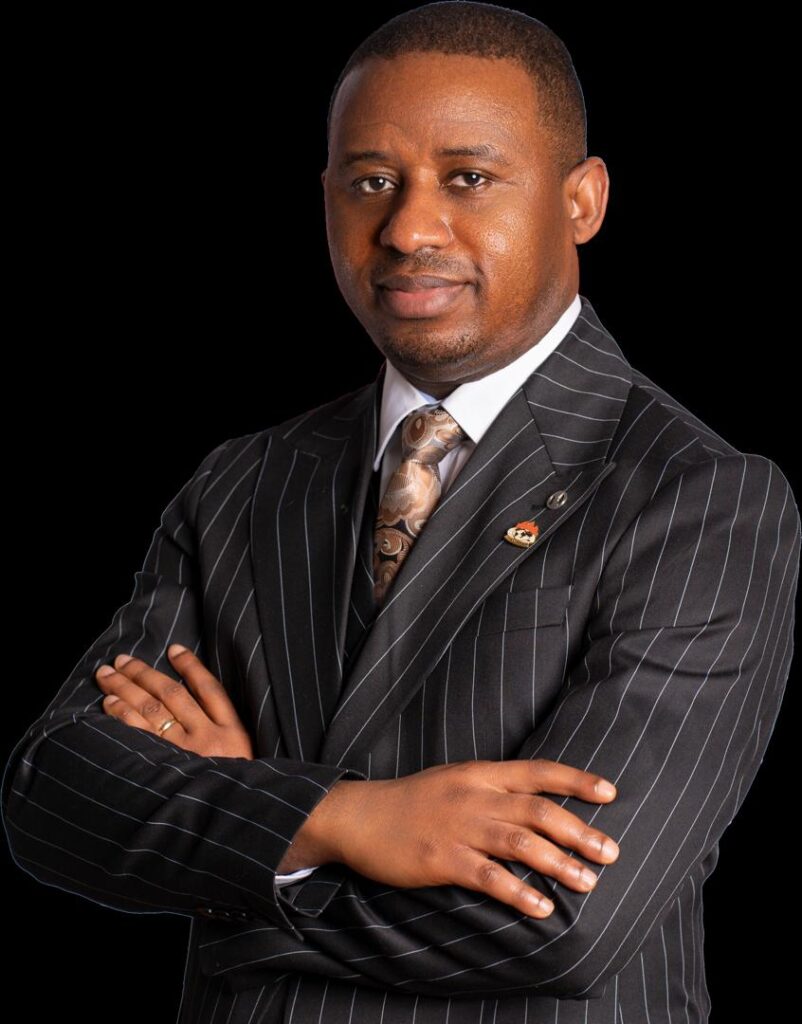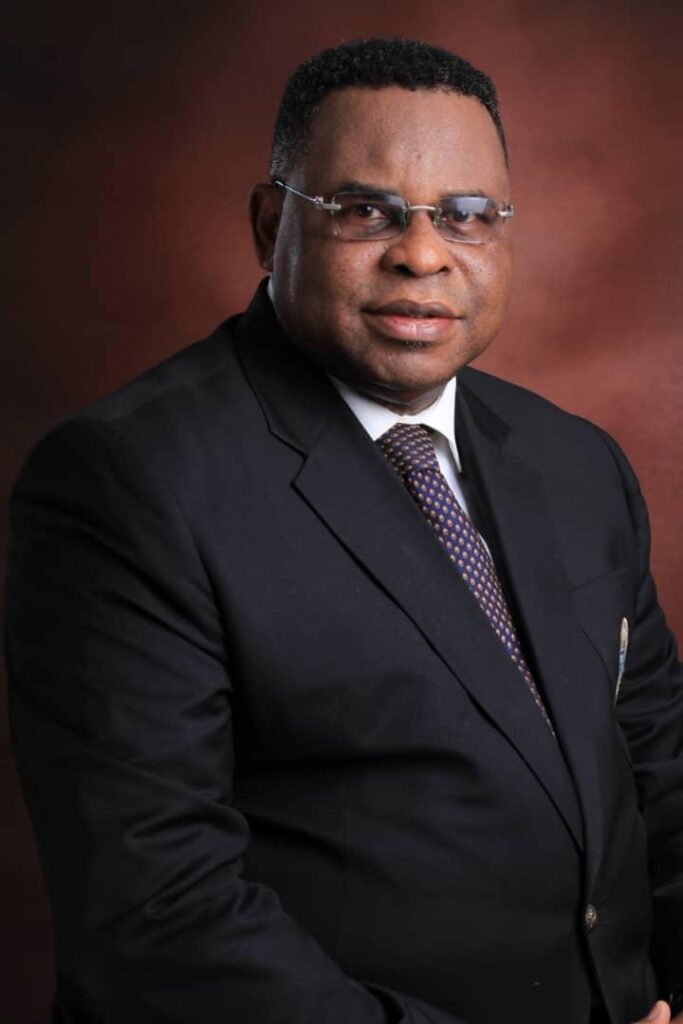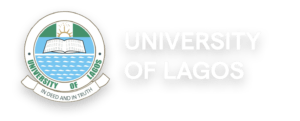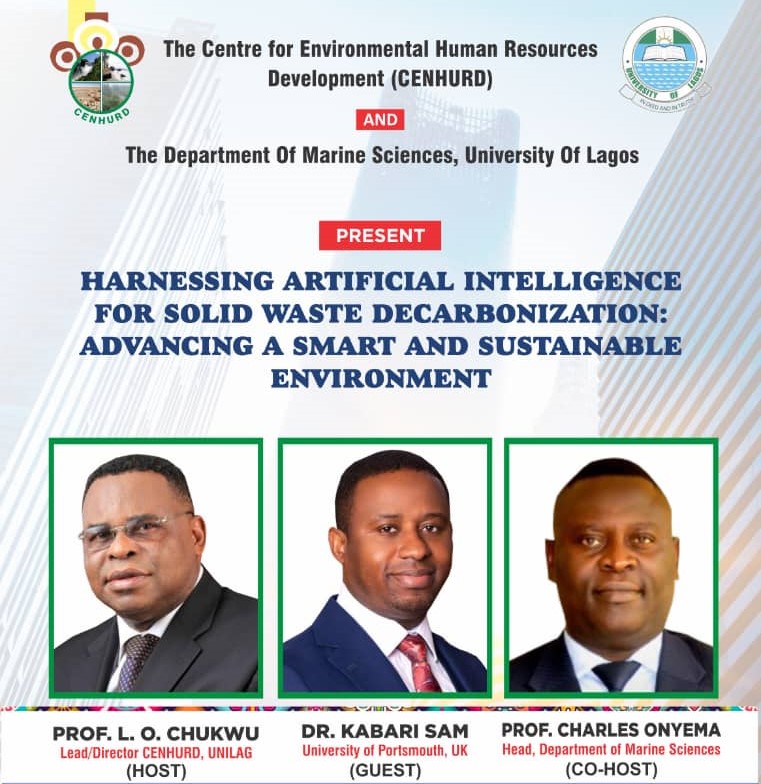AI as Tool for Waste Decarbonization Takes Center Stage at UNILAG CENHURD Lecture
The indispensability of Artificial Intelligence (AI) in managing solid wastes and building a smart and sustainable environment formed the crux of the lecture delivered on Wednesday, May 21, 2025 by Dr. Sam Kabari of the School of the Environment and Life Sciences, University of Portsmouth, United Kingdom.
Organized by the Centre for Environmental Human Resources Development (CENHURD) in collaboration with the Department of Marine Sciences, University of Lagos (UNILAG), the hybrid event drew participants such as academics/researchers, environmental agencies’ officials, industry stakeholders, and students.
Speaking virtually, Dr. Kabari emphasized the urgent need to integrate intelligent systems in solid waste management to accelerate decarbonisation efforts and mitigate climate change impacts. He noted that AI-driven solutions such as smart waste classification and sorting, predictive analytics and optimized logistics can mitigate hazards associated with traditional waste disposal methods.

The renowned expert in environmental systems and AI applications applauded Nigeria for leading Africa in terms of awareness and adoption of AI. He, however, expressed concerns over the increasing level of solid waste and the obtainable management system which he described as detrimental to the environment.
Dr. Kabari advocated a full integration of AI/Technology into solid waste management to ensure decarbonization. He also solicited carbon neutral economy where the total amount of greenhouse emissions released into the atmosphere by human activities is balanced by the amount removed.
The resource person suggested strategic government policies, public-private partnerships, capacity building and education curriculum review to enhance AI integration and usage in waste management.

Earlier in his opening remarks, the Director/Team Lead, Centre for Environmental Human Resources Development (CENHURD), Professor Lucian Obinna Chukwu described the Lecture as another highlight of the growing intersection between emerging technologies and environmental management.
The immediate past Deputy Vice-Chancellor (Management Services) of UNILAG stressed the need for a shift from seeing waste as a burden to recognizing it as a data-rich resource which is capable of powering a low-carbon circular economy.
His words “…the lecture is not just about technology, it’s about vision, a vision where Nigeria leads in climate-smart urban development, using AI not just to manage waste but to transform it into value…”.
The lecture featured a robust question and answer session which gave participants the opportunity to discuss local challenges such as data availability, funding, and policy alignment in deploying AI-powered waste solutions in Nigeria.


